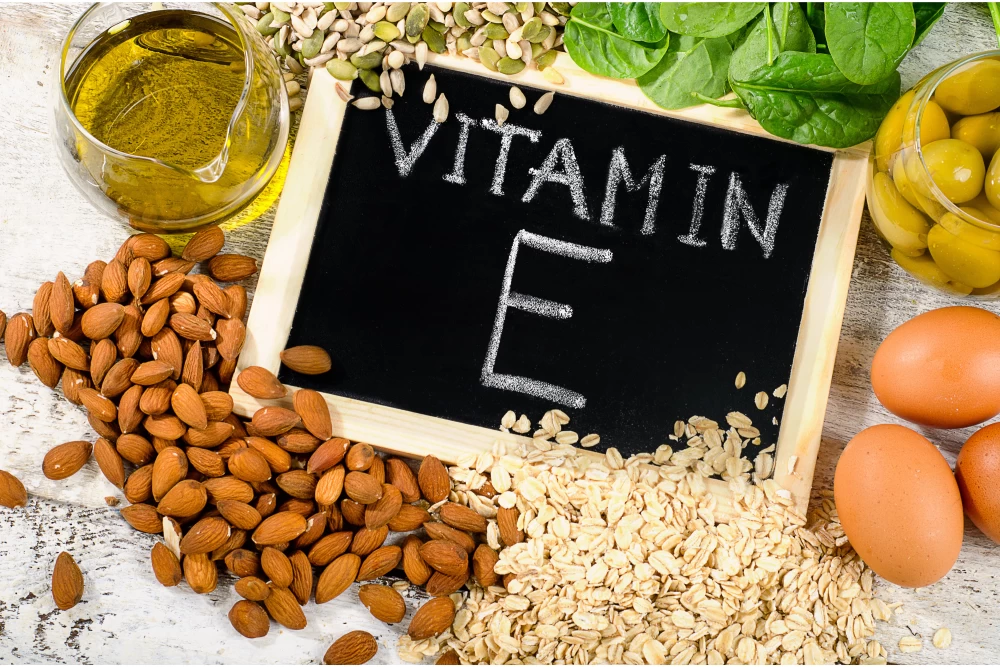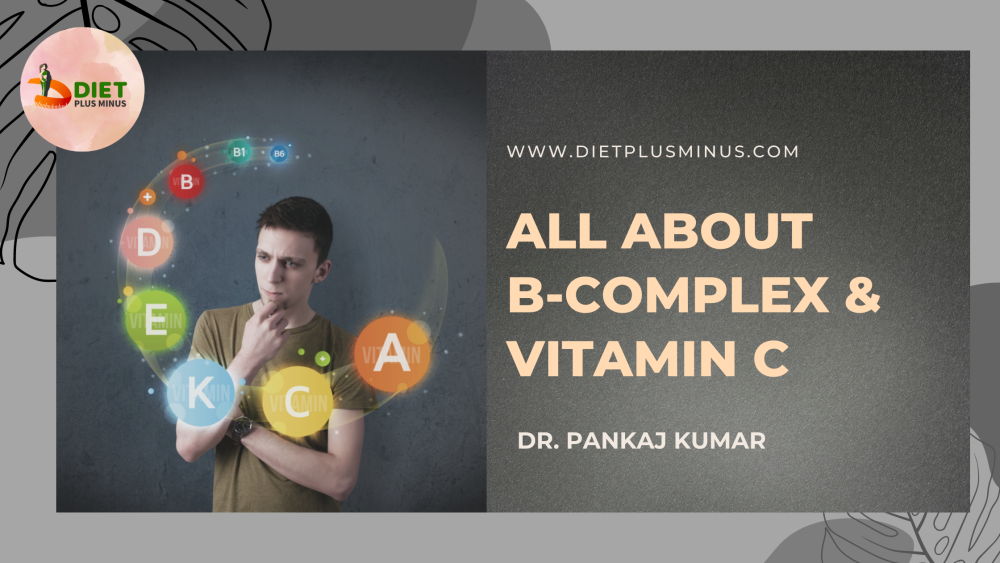
- 25th March 2023
Table of Contents
Fatty Liver Disease
Vitamin E is believed to have a significant role in the prevention and treatment of non-alcoholic fatty liver disease (NAFLD). NAFLD is a condition where fat accumulates in the liver, leading to inflammation and damage that can progress into serious liver diseases such as cirrhosis or hepatocellular carcinoma. Vitamin E has antioxidant properties that help reduce oxidative stress, which can contribute to the development and progression of NAFLD. Studies have shown that vitamin E supplements can improve liver function tests, decrease inflammation and fibrosis, and slow down the progression of NAFLD. However, it's important to note that excessive intake of vitamin E can lead to harmful effects on health. Therefore, it's recommended that individuals with NAFLD should consult with their healthcare provider before taking any supplements. In addition to supplementing with vitamin E, people with NAFLD are also advised to make lifestyle changes such as losing weight, eating a balanced diet low in sugar and saturated fats, exercising regularly, avoiding alcohol consumption, and managing other chronic conditions like diabetes or high blood pressure. These lifestyle modifications combined with appropriate supplementation may help prevent or treat Fatty Liver Disease effectively.
What is Vitamin E?
Vitamin E is a fat-soluble nutrient, which means it dissolves in fat and can be stored in the body's fatty tissue. This vitamin has antioxidant properties, which means it helps to protect cells from damage caused by free radicals. Free radicals are unstable molecules that can cause oxidative stress and damage to cells, leading to various health problems such as cancer, heart disease, and liver diseases. Studies have shown that Vitamin E supplementation may reduce inflammation and oxidative stress in people with non-alcoholic fatty liver disease (NAFLD), a condition where excess fat accumulates in the liver. NAFLD is often associated with obesity, insulin resistance, and metabolic syndrome. In some cases, NAFLD can progress to nonalcoholic steatohepatitis (NASH), a more severe form of liver disease that can lead to cirrhosis or even liver failure. While research on vitamin E's potential benefits for treating NAFLD is promising, more studies are needed to determine the optimal dose and duration of treatment. It's important to note that taking high doses of vitamin E supplements may have adverse effects on health as well. Therefore it’s always best to consult your healthcare provider before taking any supplements or making significant dietary changes for managing health conditions like NAFLD.
Benefits of Vitamin E in FLD
Vitamin E is an antioxidant that protects the liver from oxidative stress, inflammation and lipid peroxidation. It has been found to be beneficial in the treatment of nonalcoholic fatty liver disease (NAFLD), which occurs when fat accumulates in the liver due to metabolic disorders or lifestyle factors such as obesity, high cholesterol, and diabetes. Studies have shown that patients with NAFLD who received vitamin E supplements had an improvement in liver function tests and a reduction in steatosis (fat accumulation) compared to those who did not receive vitamin E. Moreover, Vitamin E has been shown to help reduce insulin resistance which is commonly associated with fatty liver disease. Insulin resistance causes elevated blood sugar levels leading to type 2 diabetes mellitus. Vitamin E can also enhance the effect of other medications used for NAFLD treatment such as pioglitazone by improving insulin sensitivity. In conclusion, Vitamin E has potential benefits in treating Fatty Liver Disease by reducing oxidative stress and improving insulin resistance. However it is important to note that high doses of vitamin E can be toxic and may interact negatively with certain other medications so speaking with a healthcare professional prior to supplementation is recommended.

Risks associated with Vitamin E in FLD
While Vitamin E has been shown to be beneficial in the treatment of Fatty Liver Disease (FLD), there are also risks associated with its use. One potential risk is that taking high doses of Vitamin E can lead to an increased risk of bleeding, especially for individuals who are already taking blood-thinning medications or have a history of bleeding disorders. Additionally, excessive use of Vitamin E supplements can cause nausea, diarrhea, and other gastrointestinal symptoms. Another concern regarding the use of Vitamin E in FLD is that it may interact with other medications or supplements. For example, Vitamin E may reduce the effectiveness of chemotherapy drugs used to treat liver cancer. This could potentially worsen the condition and lead to more serious complications. Overall, while Vitamin E has been shown to have some benefits in the treatment of FLD, it is important to weigh these against any potential risks and speak with a healthcare provider before starting any new supplement regimen. A qualified medical professional should help determine if this supplement should be part of an overall treatment plan for FLD and at what dosage level would be most appropriate based on individual patient needs.
How to get Vitamin E
Fatty liver disease is a common condition that affects millions of people worldwide. It occurs when too much fat accumulates in the liver, which can cause inflammation and damage to this vital organ. Fortunately, there are several ways to get vitamin E, which has been shown to play a crucial role in protecting against fatty liver disease. One of the best sources of vitamin E is through your diet. Foods such as nuts, seeds, and vegetable oils are excellent sources of this essential nutrient. Almonds, hazelnuts, sunflower seeds, and avocado are particularly high in vitamin E content. However, it's important to note that cooking these foods at high temperatures can reduce their vitamin E content significantly. Supplements are also an effective way to get more vitamin E into your diet. Vitamin E supplements come in various forms such as capsules or oils and can be found at most health stores or online retailers. However, before taking any supplements, it's always best to consult with a healthcare professional who can advise on the right dosage for you based on your individual needs and medical history. Overall, getting enough vitamin E is critical for maintaining good health and preventing fatty liver disease. By consuming a balanced diet rich in foods high in vitamin E content or taking supplements under the guidance of a healthcare professional as needed should help prevent deficiencies while promoting overall well-being.
Who should take Vitamin E for FLD
Vitamin E is an essential nutrient that plays a vital role in the body's immune system and helps protect cells from damage caused by free radicals. Recent studies have shown its potential benefits in treating Non-alcoholic Fatty Liver Disease (NAFLD), which is a condition characterized by the accumulation of fat in the liver, leading to inflammation and scarring. While vitamin E supplementation has been found to be effective in some cases of NAFLD, it should not be considered a cure-all solution. In fact, people with certain medical conditions or who are taking certain medications may not benefit from vitamin E supplementation. Therefore, it is important for individuals with NAFLD to consult their healthcare providers before starting any new supplement regimen. In summary, Vitamin E can be a beneficial supplement for individuals with Fatty Liver Disease; however, as with any health-related decision, it is important to seek medical advice first. By working closely with their healthcare providers and making lifestyle changes such as adopting a healthy diet and engaging in regular physical activity, those diagnosed with NAFLD can improve their chances of reversing the progression of this potentially serious condition.
Conclusion: Overall Vitamin E Benefits
In conclusion, the benefits of vitamin E are numerous and significant for those suffering from fatty liver disease. As an antioxidant, it helps to reduce oxidative stress in the liver, which is a key factor in promoting inflammation and cell damage. This leads to improved liver function and decreased risk of further complications. Furthermore, studies have shown that vitamin E supplementation can also help to reduce fat accumulation within liver cells – a hallmark symptom of fatty liver disease. By reducing the amount of fat within the liver, it allows for improved metabolic function and overall health. Overall, incorporating vitamin E-rich foods or supplements into one's diet can be highly beneficial for individuals struggling with fatty liver disease. It is important to consult with a healthcare provider before starting any new supplement regimen to ensure its safety and effectiveness for individual needs.














